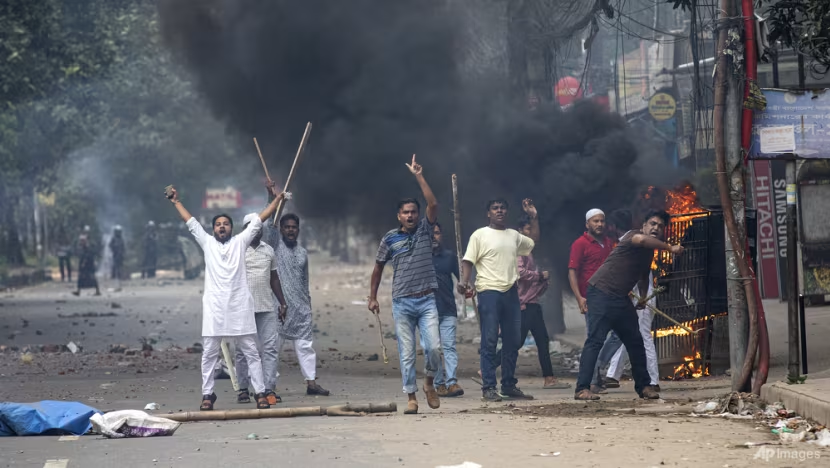Already a subscriber? Make sure to log into your account before viewing this content. You can access your account by hitting the “login” button on the top right corner. Still unable to see the content after signing in? Make sure your card on file is up-to-date.
Bangladesh has reinstated mobile internet services after an 11-day blackout, which was implemented to quell protests over government job quotas.
What’s the deal: The decision to cut internet access in Bangladesh was driven by escalating protests against the government’s job quota system, which allocated 30% of public sector jobs to the descendants of 1971 war veterans. This system sparked widespread anger among students and job seekers who felt the quotas were discriminatory and exacerbated unemployment. The protests, which began peacefully, quickly grew in scale, becoming increasingly disruptive.
🚨 শান্তিপূর্ণ আন্দোলন চলাকালে রাজধানীর মিরপুর ১০ ফলপট্টির সামনে এক নিরস্ত্র বেসামরিককে সরাসরি বুকে গুলি করে হত্যা করে পুলিশ!
— DOAM বাংলা (@doamuslimsbn2) July 29, 2024
তারিখ: ১৯শে জুলাই ২০২৪
লোকেশন: মিরপুর ১০, ঢাকা। #QuotaReform #QuotaProtest #StepDownHasina #Bangladesh #SaveBangladeshiStudents #Dhaka… pic.twitter.com/lEgFS56oXt

What the government is saying: A state official said, “We have decided to restore the 4G network connectivity from 3 pm [09:00 GMT] today.” Social media platforms, including Facebook, TikTok, Youtube, WhatsApp, and Instagram, are still blocked despite restoring the internet. In addition, the country is still imposing a nationwide curfew.
Arrests: During the protests against Bangladesh’s job quota system, thousands of demonstrators have been arrested, including student leaders.
Deaths: The Bangladeshi government claims that at least 147 people died during the protests against the job quota system. However, independent sources estimate the death toll to be over 200. The victims included students, police officers, and activists.






